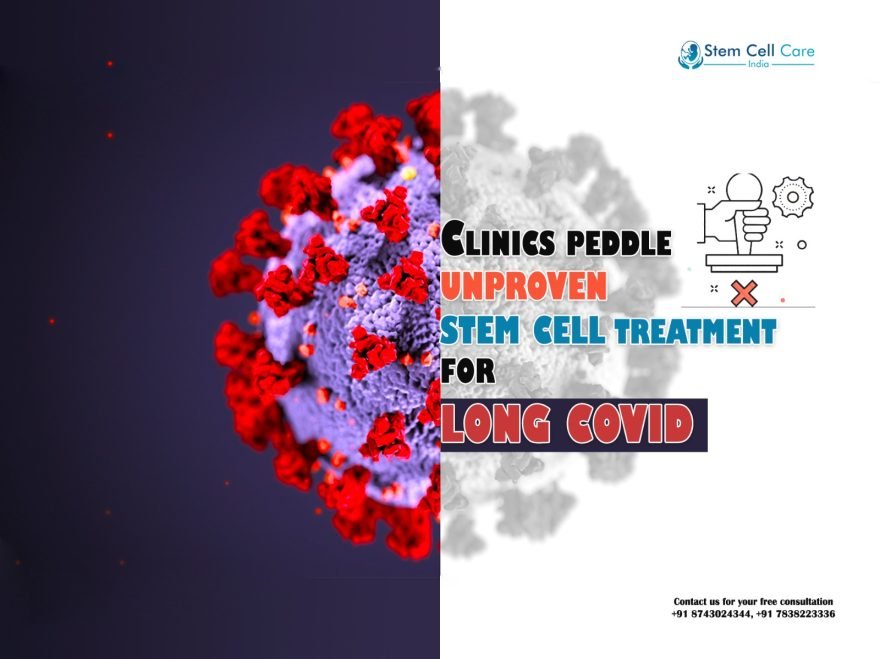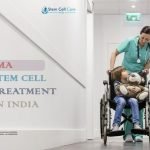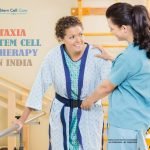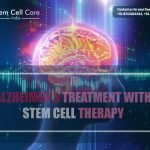According to a research released today, companies offering costly and untested stem cell therapies are focusing on patients with protracted COVID, an often debilitating ailment for which there are now no recognized treatments.
38 direct-to-consumer companies were found by researchers to be offering alleged stem cell treatments to treat and prevent the virus; 36 of these companies also make claims to treat post-COVID syndrome.
“There’s an important opportunity here for regulators to understand there are still quite a number of businesses making problematic advertising claims,” said Leigh Turner, PhD, the first author of a study on the issue and a bioethics professor at the University of California, Irvine Department of Health, Society, and Behavior. “I don’t think this is going to go away anytime soon. It needs to be a high priority.”
No other cell in the body has the ability to create new cell types, which is why stem cells are sometimes referred to as the body’s “master cells.” Furthermore, despite their potential for cell regeneration and repair, these medicines have not received regulatory body approval and lack strong safety and efficacy evidence.
In 2019, the FDA released a caution about the use of stem cell treatments for COVID-19 treatment.
Sixty clinics total—24 in the United States, 22 in Mexico, and additional clinics in the Cayman Islands, Guatemala, Malaysia, Panama, the Philippines, Poland, Spain, Thailand, Ukraine, and the United Arab Emirates—are run by these companies.
“It was interesting to me the extent to which these were businesses operating in the U.S., not in far-flung places,” Turner said.
Clinics charge between $2,950 to $25,000 for stem cell products, according to the report.
Many patients who have had long-term COVID experience symptoms like severe headaches, intense exhaustion, and cognitive fog that last for months or even years. Ten percent of infected individuals will develop post-COVID syndrome. According to Kristin Englund, MD, an infectious disease specialist who oversees the Cleveland Clinic’s reCOVer clinic for long-term COVID patients, patients are especially susceptible to fraudulent claims because of the severity of the symptoms and the absence of therapies.
Without supporting data from science or approval from a regulatory body, businesses frequently attempt to make claims about medical benefits, according to Englund.
“When you work with this population, you see how desperate they can get to return to the lives they lived pre-COVID,” she said. “Some of the patients we’re seeing, they’ve been going on 3 years with these symptoms. At this time, there is no single diagnosis, no single treatment, and that is tremendously frustrating for patients.”
Scientist and computational biologist Julia Moore Vogel, PhD, has viewed this issue from both a patient’s and a scientist’s perspective at Scripps Research. Running for long distances was the 38-year-old’s activity prior to contracting the virus in July 2020. After three years of enduring a lengthy COVID, she now counts her steps to prevent fatigue.
She has also tried some low-risk treatments like vitamins, but they didn’t work for her. Because there isn’t enough reliable evidence, she wouldn’t employ stem cell therapy.
“I of course remember, in school, stem cell therapies being something that was very much an area of interest,” she said. “I would just really need to see the data before I could feel confident about trying it.”
According to Michael R. Jordan, MD, an infectious disease specialist at Tufts University in Boston, there is still much to learn about post-viral syndromes in general, despite the fact that the FDA has approved several stem cell clinical trials for long COVID and the National Institutes of Health has launched multiple clinical trials aimed at treating the disease.
“There are a number of observational cohort studies and clinical trials in progress to assess various treatments for long COVID,” he said. “But what is important is there is no proven treatment at this point, and recommendations are for patients to work with licensed, qualified and experienced health care providers for symptom management.”







